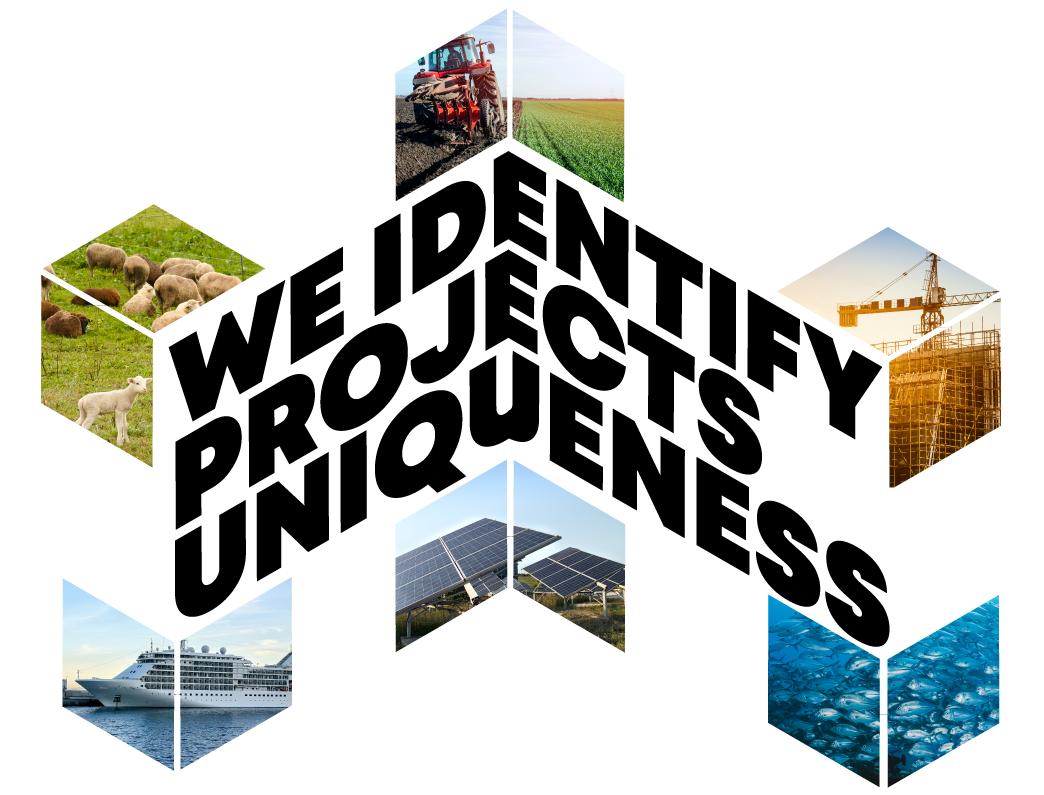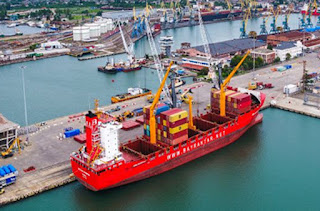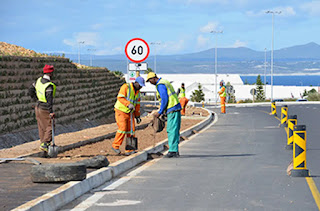Ethnic Somalis run a thriving informal economy in Nairobi’s Eastleigh neighbourhood
On a visit to a bank in Eastleigh, a Nairobi neighbourhood, Richard Etemesi was taken aback by the appearance of a customer. “He had dollars all over his body – in his socks, his belt; he was just piling out cash, half undressed in the branch manager’s office,” says the chief executive of Kenya’s Standard Chartered bank.
Such are the informal and unexpectedly wealthy ways of Eastleigh, a dishevelled neighbourhood built on trade, tax evasion, smuggling and regional connections. It is home to a number of Kenya’s unofficial bank balances generated by traders whose cash is stuffed under flowing robes. Since the political collapse of neighbouring Somalia more than 20 years ago, traders from that country have made their second home in what was once an Asian residential estate. So strong is their trading network that this area in the heart of the Kenyan capital is better known as “Little Mogadishu”.
It hardly looks wealthy. Women in long veils pick their way through rutted roads filled with rubbish and hawkers. Street sellers guard bags of charcoal piled up in the mud, and containers double as high-end shop fronts offering smuggled goods. But despite the puddles and the rubbish, bankers joke that Kenya’s currency rates are not determined until Eastleigh turns in its daily numbers.
Hassan Guleid, chairman of the Eastleigh Business District Association, says the neighbourhood turns over more than $100m a month. “The whole Somali economy washes out in Eastleigh,” adds Etemesi, who is also chairman of the Kenya Bankers Association.
The success is down not only to illegal practices, but a different notion of wealth. Somali businessmen have no truck with costly showrooms or expensive credit, often plumping for scale over profit margins.
“Somalis are business-minded people,” says Abdi Wali Abdullahi, a former army captain who entered Kenya as a refugee in 1991. Now 50, he imports spaghetti from Turkey and Dubai, and sugar from Mombasa, storing everything in a big warehouse in Eastleigh. “We get a lot of facilities. Since I came here, I got education for my children. We are working, have our businesses here,” says Abdullahi. “It’s free of charge in Somalia,” he adds in a nod to the informal business environment that makes imports cheap. “We pay no taxes or customs.”
The regional trading hub does not just attract Somalis; buyers come from as far as Burundi and Rwanda for clothes and electronics. “You can get anything you want here,” says Paul Kioko, a non-Somali Kenyan who works in the area. “Eastleigh is like the headquarters of east and central Africa as well as the headquarters of the Somali people.”
Along downtrodden streets, low-rise shopping malls named Emirates, Bangkok and Hong Kong are testament to far-flung trading partners. Shiny new hotels filled with chandeliers and restaurants selling fancy cakes display the time in Dubai, Beijing and London. “Eastleigh is at the centre of a network of trade that connects the Arabian peninsula, Somalia, Kenya and east and central Africa, with the Somali business community as the common thread,” said Farah Abdulsamed, an analyst at Chatham House, the UK think-tank, in a report last year.
Goods are flown tax-free from Dubai via Eldoret in western Kenya and trucked to Eastleigh, or imported by sea to Mombasa or Somali ports and trucked onwards. Such is the intoxicating mix of formal and informal, that despite the area’s reputation for smuggling and tax evasion, Standard Chartered has never received a counterfeit banknote at its Eastleigh branch. “It’s a bit of the Wild West. You’d expect there to be some fraud [or] robbery, but strangely enough, no,” says Etemesi.
Business in Eastleigh operates on the hawala system of money transfer. Built on total trust and fear of reprisals, Somalis abroad entrust their money to agents, whose corresponding agents – often family members – pay in the cash at the other end, believing they will be repaid in cash or goods at some point in the future.
“Somalis have a very different code in terms of how they run business – a handshake means a lot more than a signed piece of paper: ‘I need to trust you and know the clan that you come from, because if you screw me or shaft me, I know where to find you; the clan will know where to find you,’” says Etemesi, adding that his first Eastleigh branch failed until they replaced the bank manager with a Somali.
Standard Chartered is just one of several international banks whose shiny facades clash with the detritus around them. Edward George, head of soft commodities research at Ecobank, a pan-African bank, says so far banks have only had a tiny share of Eastleigh’s business but are eager to grab a larger and more formal slice. The neighbourhood is thought to reach $3m a day in black market currency trades alone. George says Somali traders also dominate soft commodity movements throughout the region, in everything from rice to sugar and flour.
“Most of this trade takes place off the radar, using a complex web of hawala lenders, local traders and businessmen. They operate in cash, outside the global banking system, channelling goods into east Africa and beyond,” says George. “Given the sheer volume of goods passing through Eastleigh, it is natural that commercial banks want to get involved in what is a very lucrative trade.”
The area has plenty of money to play with. Somalia receives more than $1bn a year in remittances, which have helped transform Eastleigh’s economy. In addition, a proportion of piracy ransoms, worth up to $400m a year, has provided seed money for transport start-ups, says Guleid. A property boom paid for by laundered money has also boosted prices.
The area’s reputation as a Somali enclave has led to problems, not least because of historic suspicion between ethnic Somalis and other Kenyans.
“There’s a deeply rooted Kenyan problem that … stigmatises the Somali as separatist and not part of the national story,” says David Anderson, professor at Oxford university’s African Studies Centre, who is researching Eastleigh. The mutual enmity dates back to a long-running war against Kenyan Somali secessionists that began in the 1960s. Despite recent efforts to suppress census results, it was eventually revealed that, since 1989, the number of ethnic Somali Kenyans has risen dramatically, to 2.3m. “They are easily demonised as a threat to Kenyan identity and stability, and perceived to have business practices that are discreet and exclusionary,” he says.
Kenya’s unprecedented invasion of Somalia last year, alongside a series of grenade attacks in Kenya linked to supporters of al-Shabaab, the militant Somali Islamist group, has raised tensions further. Kenya’s assistant minister of internal security, Orwa Ojode, said last year that al-Shabaab had its tail in Somalia and its head in Eastleigh, promising “the mother of all operations” against the area. “We will kill those who stay in Eastleigh, those al-Shabaab,” said one man, speaking after a grenade attack in downtown Nairobi earlier this year. “They’re all the same. As long as they are not citizens, they should be ferried back.”
Guleid says Nairobi is “extremely vital” for al-Shabaab, and warns against heavy-handed tactics that fuel xenophobia. “If Eastleigh goes out of control, if they’re intimidated, if you push them to the wall, that will be good fodder for al-Shabaab,” he says.
Human Rights Watch says police round-ups and extortion of money from those who cannot produce Kenyan identity cards have long been a regular feature of Eastleigh life. Mohamed Amin, 21, is one of many Somali refugees who fled home and made his way here without legal papers. “We can’t leave Eastleigh at night. The police ask for ID so it is so difficult for us,” says Amin, who arrived in 2000 and today earns 40 cents an hour selling TVs and mobile phones in a small kiosk.
Yet Kenya’s high Somali population may also keep it safe, forcing al-Shabaab to look elsewhere rather than risk any harm to Somalia’s financial hub. And while Kenya’s parliamentarians complain a shirt in Eastleigh sells for far less than downtown Nairobi, thanks to tax evasion, economic gain helps overcome long-term enmity.
“Just about everything the Kenyans say about Eastleigh is wrong. Alongside the Somali money that undoubtedly does go into Eastleigh, there’s much more Kikuyu [the most populous Kenyan ethnic group] money as well,” says Prof Anderson.
Standard Chartered’s Etemesi argues Eastleigh’s property boom and thriving economy may be fleeting – a store of value for Somalis who one day want to return home as the failed state begins to put itself back together. “They’re not going to put their cash in Mogadishu for now, they certainly can’t put it in the west, and it’s just too complicated because of money laundering laws to put the money in a bank. So they buy or put up property, but it’s not because they want to own it,” says Etemesi.
Already diaspora Somalis are going back, following military gains against al-Shabaab over the past year. “If things ever come right in Somalia, we’ll see a lot more business shift. When the time comes, they’ll flog everything and take their cash back to Mogadishu,” Etemesi says. For now, though, Eastleigh’s boom days are far from numbered.















